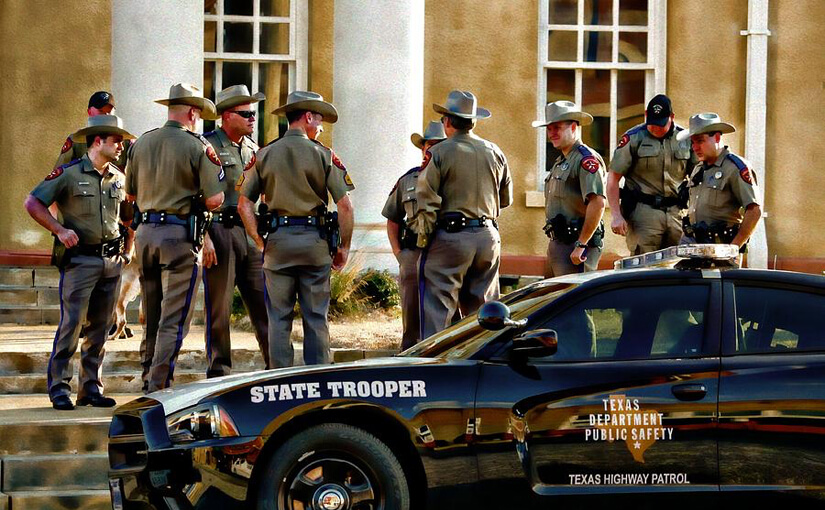- Provide schooling and education
- Provide protection (police)
- Provide safety (fire departments)
- Give a driver’s license
- Approve zoning and land use
In the United States, the federal and state governments both hold power.
Before the Constitution, the 13 colonies governed themselves individually much like state governments. It was not until the Articles of Confederation and then the Constitution that a national or federal government was established.
Today, although each state has its own constitution, these state constitutions cannot conflict with the U.S. Constitution. The U.S. Constitution is the supreme law of the land.
The state governments hold powers not given to the federal government in the U.S. Constitution. Some powers of the state government are the power to create traffic regulations and marriage requirements, and to issue driver’s licenses.
The Constitution also provides a list of powers that the states do not have. For example, states cannot coin (create) money. The state and federal governments also share some powers, such as the ability to tax people.
** As you prepare for U.S. citizenship, Learn About the United States: Quick Civics Lessons will help you study for the civics and English portions of the naturalization interview. There are 100 civics (history and government) questions on the naturalization test. During your naturalization interview, you will be asked up to 10 questions from the list of 100 questions. You must answer correctly six (6) of the 10 questions to pass the civics test.


